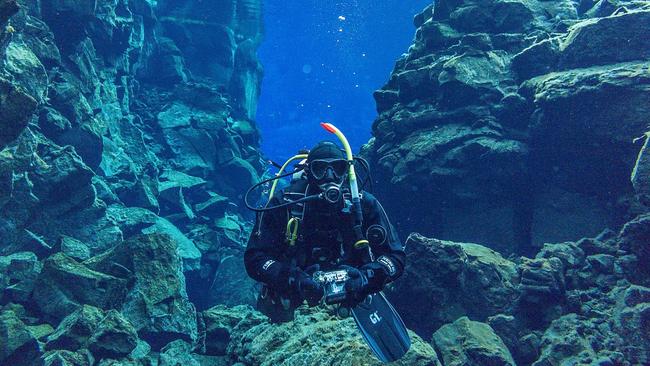Australian scientific research unlocks mysteries of the deep sea using 3D images
HI-TECH 3D images are being used by Australian scientists to help understand the wonders of the ocean depths.

News
Don't miss out on the headlines from News . Followed categories will be added to My News.
DEEP ocean floor formation, potential clues to the origins of life and hotbeds for the formation of precious metals are mysteries being unlocked by new Australian research.
Scientists have used 3D imagery to help understand how ocean basins and new sea floor is generated along tectonic plate boundaries called mid-ocean ridges.
SEVEN FERRY SURVIVORS FOUND IN THE PACIFIC OCEAN
WORLD’S OLDEST MESSAGE IN A BOTTLE FOUND ON WA BEACH
QUESTIONS REMAIN OVER AUSTRALIA’S GREATEST MARITIME MYSTERY
International research by the Australian National University and University of Southampton is investigating the formation of Earth’s crust and its continuing spread along the global mid-ocean ridge system, where opposing oceanic plates are pulled apart.
The research has provided evidence of how mantle flow beneath oceanic transform faults, which connect the ridge segments, contributes to sea floor spread.
“Our findings confirm that upwelling beneath transform faults plays a vital role in stabilising these divergent plate boundaries,” ANU Research School of Earth Sciences lead researcher Dr

Caroline Eakin said. “A fundamental feature of this sea floor spreading is the formation of transform faults. The characteristic ridge-transform geometry is a key component of plate tectonics and governs the creation of new sea floor.”
Dr Eakin said mid-ocean ridges were important sites, potentially holding clues to the origin of life.
“Today, unique ecosystems exist along these ridges. Around volcanic hydrothermal vents the only life on Earth that is entirely independent of sunlight can be found,” she said.
Dr Eakin said most of Earth’s crust, both now and in the past, was formed along the global mid-ocean ridge system.
The research is published in the Journal of Geophysical Research: Solid Earth.


